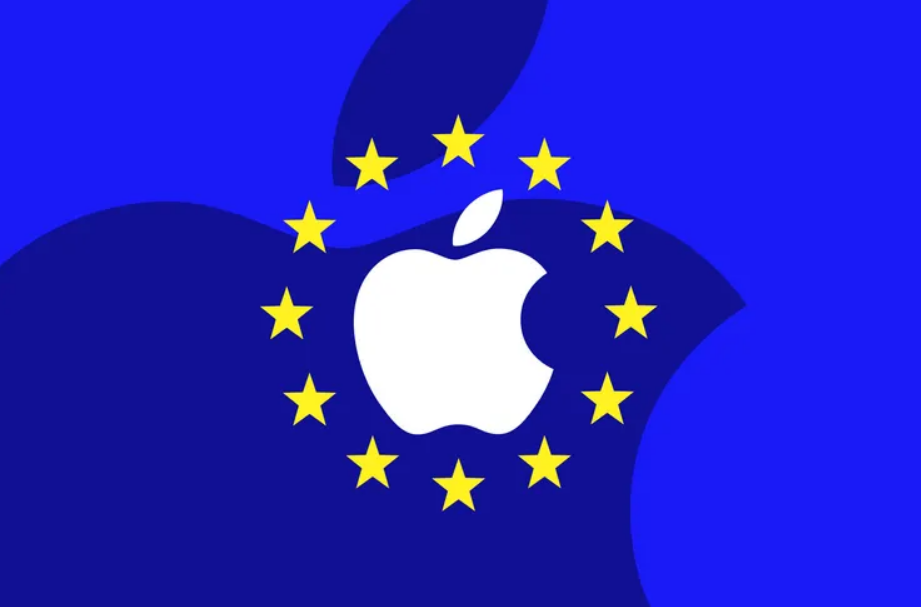Cath Virginia / The Verge
Apple’s App Store “steering” policies violate the EU’s Digital Markets Act meant to encourage competition, said regulators in their preliminary ruling Monday.
The European Commission has also opened a new investigation into Apple’s support for alternative iOS marketplaces in Europe, including the core technology fee it charges developers.
“Our preliminary position is that Apple does not fully allow steering,” said Margrethe Vestager who heads up competition policy in Europe. “Steering is key to ensure that app developers are less dependent on gatekeepers’ app stores ….continue reading…
Source: Apple is first company charged with violating EU’s DMA rules – The Verge
.
Critics:
The present rules applied within the European Union with regard to digital markets are derived from European and national legislation. Under these circumstances, the basis for competition rules in the EU is established by Articles 101 and 102 of the Treaty on the Functioning of the European Union (TFEU).
Article 101 addresses anti-competitive agreements and concerted practices that may affect trade between members states or reduce competition in the common market. Article 102 aims to tackle the abuse of dominant positions. All players operating in the common market are therefore subject to these provisions. European and national authorities have identified the need to strengthen the current legislation, given the structural problems that are not covered.
The Digital Markets Act is in line with the legislative developments undertaken by the Juncker Commission between 2014 and 2019. One of the most important pieces of EU digital legislation is represented by the EU copyright rules. This has led to the protection, payment, and recognition of workers in thirty-three sectors and it aims to reward creativity, stimulate investment in the creative sector.
Another relevant achievement can be considered the implementation of the General Data Protection Regulation (GDPR) in 2016. This regulation sets out the new European framework for the use and circulation of personal data and has a significant impact on the major digital players. In addition, the regulation on platform-to-business trading practices (P2B) has been established to create a fair, transparent and predictable business environment for smaller businesses and traders on online platforms.
This regulation has applied in July 2020 and prevents market distortion, encourages healthy competition and prohibits unfair practices. The Digital Markets Act proposal was submitted by the European Commission to the European Parliament and to the Council of the European Union on 15 December 2020. Along with the Digital Services Act (DSA), the DMA is part of the Commission’s European Digital Strategy entitled Shaping Europe’s Digital Future.
The proposals were presented by the Executive Vice President of the European Commission for A Europe Fit for the Digital Age, Margrethe Vestager, and by the European Commissioner for Internal Market, Thierry Breton, as members of the Von der Leyen Commission. On 23 November 2021, the Parliament’s Committee on the Internal Market and Consumer Protection (IMCO) adopted its position on the DMA proposal, and the text was adopted in plenary session of the European Parliament on 15 December 2021.
The approved text became the Parliament’s mandate for negotiations with the Council, which started under the French presidency of the Council in the first half of 2022. On 25 November 2021, the Council agreed its negotiating position, providing the Presidency with a mandate for the discussions. On 24 March 2022, the Parliament and the Council meeting in the trilogue format together with the Commission reached a political agreement on the DMA.
The negotiators reached a consensus on the interoperability provisions for large messaging platforms: the said obligations will make it possible for users to communicate between different platforms, giving them more choice against the increasing dominance of certain companies. The choice is expanded also through provisions that guarantee users’ free choice as regards browsers, virtual assistants or search engines, while no interoperability obligation for social networks has been decided upon yet.
In the political agreement, platforms with a market capitalization of €75 billion or turnover in the European Economic Area equal to or above €7.5 billion have been included in the rules’ scope. An agreement was reached for penalties, which will be amounting from 10% of annual worldwide turnover due to non-compliance for first infringements up to 20% in the case of repeated infringements.
The text of the DMA provisionally agreed in March 2022 was made publicly available by the European institutions only on 22 May 2022. The DMA was formally adopted by the Parliament on 5 July 2022 and by the Council on 19 July 2022, and it was signed into law on 14 September 2022 by Presidents of the Parliament and the Council, which concluded the legislative procedure.
The adopted text was published in the Official Journal of the European Union on 12 October 2022, setting it to come into force twenty days after the publication, on 1 November 2022. The 2 May 2023, 6 months later, the regulation started applying and the potential gatekeepers had 2 months to report to the commission to be identified as gatekeepers. This process would take up to 45 days and after being identified as gatekeepers, they would have 6 months to come into compliance, at the latest the 6 March 2024 From 7 March 2024, gatekeepers must comply with the DMA.
The DMA specifically targets Big Tech companies. The DMA proposed to classify certain platforms, according to their number of users, capitalisation, market power or turnover, probably including Apple, Google, Facebook and Amazon as “Gatekeepers” making them subject to new obligations. It aims at preventing large companies from abusing their market power and to allow smaller and new players to enter the market.
In December 2020, the European Commission released a legislative proposal that intends to protect consumer welfare and to restore a level playing field in the European Union’s digital market. At the moment, the economy is being driven to a large extent by the activities conducted through online platforms. A small number of online platforms have come to play a crucial role in the lives of millions of individuals and companies.
They intermediate a significant portion of transactions between consumers and businesses, leading to extreme dependencies of many businesses on these important platforms. In the table below, it can be observed that EU digital markets face a high level of concentration, with companies such as Google or Facebook controlling almost the entirety of a specific market segment.
DMA: EU Publishes The New Digital Markets Act”.
EU announces sweeping new rules that could force breakups and hefty fines for Big Tech”.
The European Commission Digital Markets Act: A translation”.
Regulating big tech: the Digital Markets Act”.
EU confirms the six tech giants subject to its strict new competition laws”
Digital Markets Act: rules for digital gatekeepers to ensure open markets enter into force”.
Facebook fined €110m by European Commission over WhatsApp deal”.
“E.U. Fines Google $5.1 Billion in Android Antitrust Case”.
The Digital Services Act package | Shaping Europe’s digital future”.
Shaping the Digital Single Market”.
The impact of the GDPR on the online advertising market.
The Platform to Business Regulation (the ‘P2B Regulation’) – why worry?”.
Brussels’plans to tackle digital ‘gatekeepers’ spark fevered debate”. Financial Times.
EU parliament adopts regulation targeting internet giants”.
Digital Markets Act: ending unfair practices of big online platforms”.





Leave a Reply